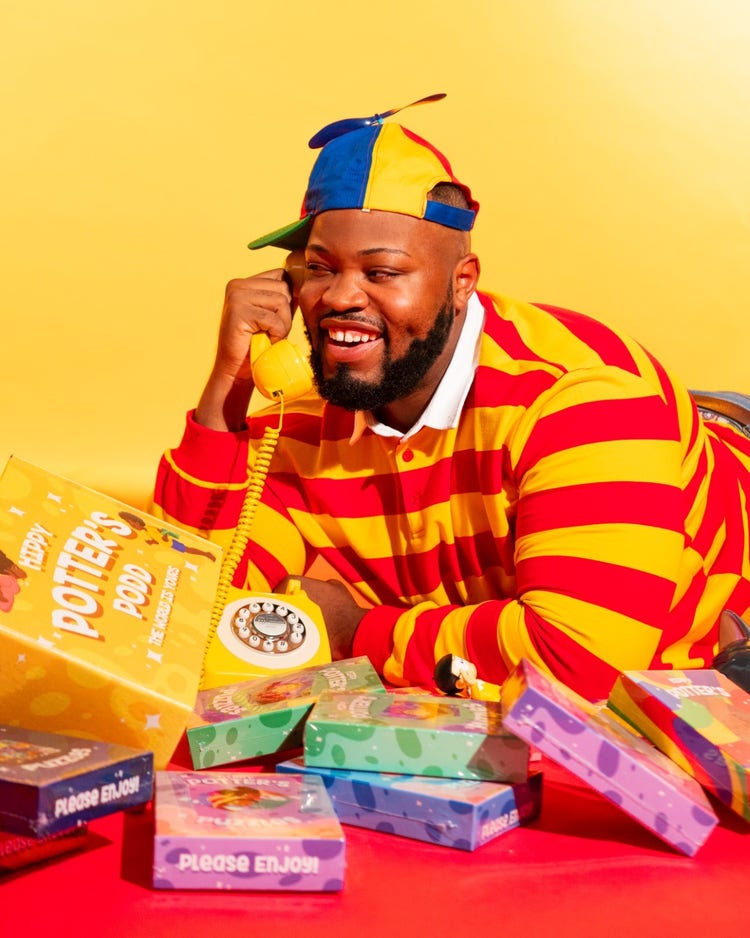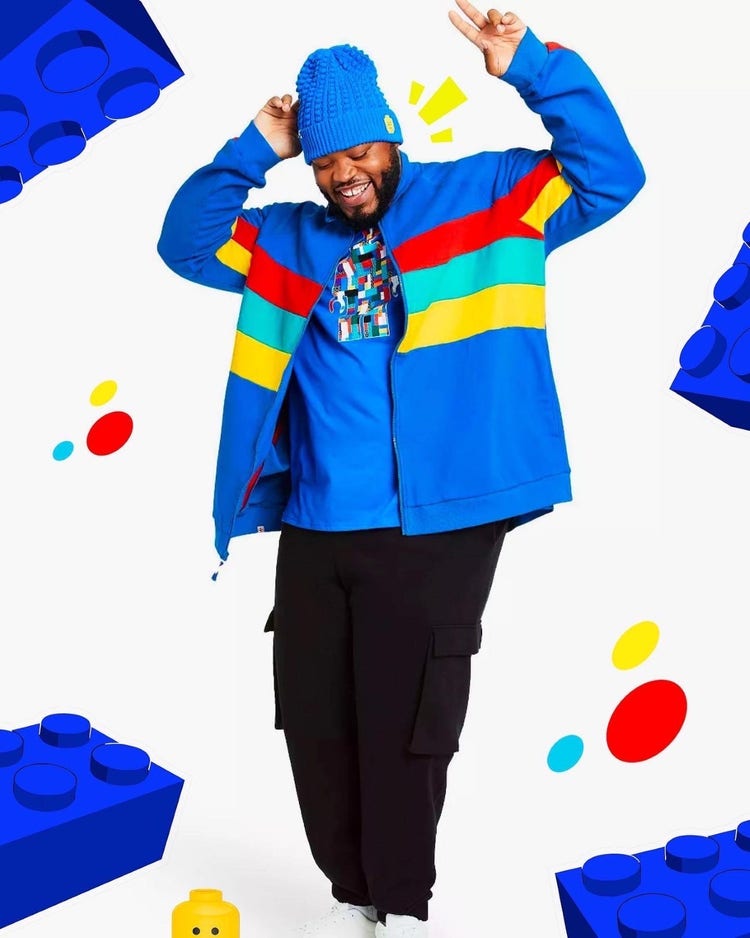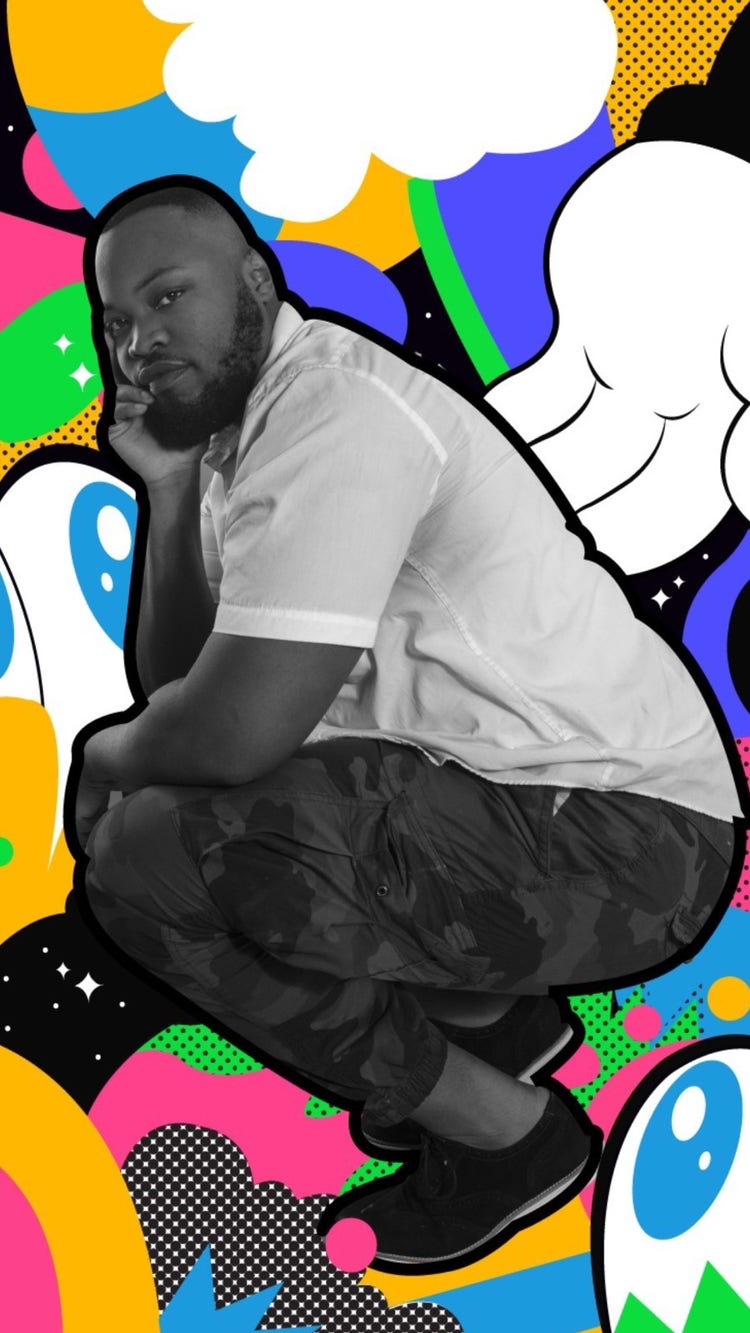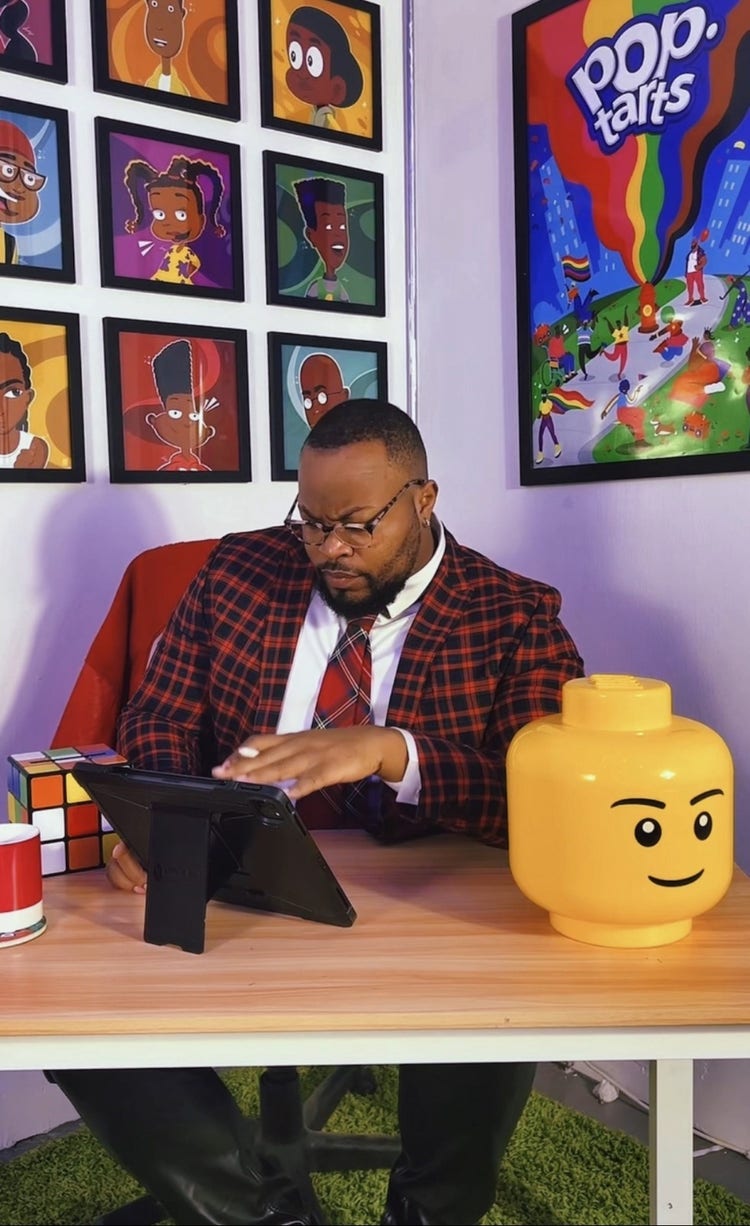Thaddeus Coates on gentle reminders, afrofuturistic artwork, mental health and self-love

To help bring awareness during Minority Mental Health Awareness Month, I had the opportunity to chat with award-winning artist, Thaddeus Coates, to share how he focuses on nuturing his mental health and brings authenticity and clarity to his work, including self-affirmations and self-love practices.
With mental health conditions on the rise, the Adobe Foundation partnered with the National Alliance on Mental Health (NAMI) to explore the transformative power of creativity in supporting mental well-being in marginalized communities. According to NAMI research, people who identify as multiracial say engaging in creative activity can help reduce feelings of depression or hopelessness with friends and family being creative as the most important motivator for inspiring their own creativity.
At Adobe, creativity is just one of the ways to help to open new pathways and to support the mental health crisis and we recognize the important opportunity we have to make a positive impact on mental health outcomes for our community and with the Adobe Foundation and NAMI.
Meet Thaddus Coates

Photo credit: Thaddeus Coates.
Thaddeus Coates — the multi-hyphenate digital creator, animator, model, and creative known as @hippypotter — may be ushering in a new generation of animation with his digital skills, but that doesn’t mean he skirts away from inspiration of the past. “Right now, I’m really into this one particular scene from Fantasia 2000. I remember it was revered when it came out, and my music teacher made us watch it in school but I wasn’t really paying attention. Now, I’m nostalgic for it because there’s a city sequence that plays [Gershwin’s] “Rhapsody in Blue” and I have a hyper-obsession with trains and transportation in my own animations, being from a metropolitan city. I’ve just been thinking about that whole scene, animated in shades of blue, and how the universe really brings everything full circle.” That’s just the beginning of the nostalgic, inner-child explorations and rabbit holes that Thaddeus finds himself in, seeking inspiration from Y2K video game soundtracks, lava lamps, and watching movies on an Emerson VCR in his creative studio.

Photo credit: Thaddeus Coates
This is the epitome of Thaddeus’ creative process playing. And diving deep into “world-building,” there are no limits to his creative pursuits, be it toy design, set design, video game creation, and beyond.
The artistic bend towards play and joy offers profound purpose, though, as Thaddeus has amassed a major following and platform centered on queer, Black joy. Through his animations and digital artwork— at his personal handle and with some of the biggest brands in the world like HBO and Kellogg’s — he’s championing the power of visibility, vulnerability and prioritizing mental wellbeing.
Alchemizing feelings through art

Photo credit: Thaddeus Coates.
Practicing art in a serious way since high school, Thaddeus has found the outlet incredibly powerful. “I started animating around 2016, making sequences in Adobe Photoshop. Most people don’t know you can animate in Photoshop, but you absolutely can. All my friends can tell you, in school, I would be listening to some city-pop-Japanese-inspired-funk music at like 7 in the morning just drawing before I had my first class at 9AM, and then would head straight back to the lab after, just working and working.”
Through this work over the years, he’s demonstrated the power of processing your emotions and mental state alongside his creativity. “I’ve become really introspective, processing boundaries, processing relationships, processing what it means to put yourself first or feel small or recognizing you deserve good things…these ideas that I feel like everybody can relate to, and don’t seem so private when I’m sharing out loud,” he says.
“[Because] mental health also focuses on how you talk to yourself. I utilize this dialogue that I have with myself to create this field of community where everybody can plant seeds of self-affirmation and self- love. And, enough people have been planting seeds and all the seeds are growing into all these flowers.
—Thaddeus Coates
And for those who are working through complex feelings and don’t feel they know which creative outlet fits them best, Thaddeus suggests to just begin. “Start with what you know and build from there,” he says, “And for procrastinators — which I can be too — sometimes we’re just waiting to get that certain tool or prop or program. But there’s always a way to work around it, or play with what you’ve got and make something happen. Move through it.”
Affirmations for all

Photo credit: Thaddeus Coates.
“I was just having conversations with myself and my friends, on a 1:1 level, and I didn’t realize how coveted or needed these words, or gentle reminders, would become until I set the text to art,” he says.
During the Black Lives Matter movement, Thaddeus began to put these encouraging and paradigm-shifting words to his illustrations, where people were already naturally drawn to his bright, effervescent internet presence. From there, he invested time looking deeper into mental health and possible resources that could benefit marginalized communities.
“I began to put a lot more of myself in my art, and so these conversations with others and check-ins I do with myself, I started putting them in quotes that would resonate,” he says. “[Because] mental health also focuses on how you talk to yourself. I utilize this dialogue that I have with myself to create this field of community where everybody can plant seeds of self-affirmation and self- love. And, enough people have been planting seeds and all the seeds are growing into all these flowers. Now we’ve built this [virtual garden] to cultivate this really cool sense of amnesty and grace,” Thaddeus says, which is evidenced by his six-figure following and incredible community of engaged artists.
Giving back to your inner child

Photo credit: Thaddeus Coates.
Beyond affirmations and potent words of wisdom, Thaddeus shares both the end result and process of animation blocks that retell old cartoons with Black characters, center Afrofuturism, amplify visuals of queer Black joy in general (and add a dose of Renaissance-era Beyonce, for good measure). The process of his art journey has also provided important healing benefits, created space for his inner child, but also provided a space to address his intersectional identity.
“I think intersectionality is such a beautiful thing. It's really important for us to realize the different things that make us who we are. Not only am I a Black artist, I'm a Black queer artist, and that has a specific impact on how I create and why I create and what I create for,” he says. “I love the representation of Black pride and Black joy, because it exists and we do not always carry a story of plight. We can have a story of plight, but we also smile. We have really great times and we are wonderful people with wonderful energy. These [joyful] stories are important and these narratives are important.”
“I think intersectionality is such a beautiful thing. It's really important for us to realize the different things that make us who we are. Not only am I a Black artist, I'm a Black queer artist, and that has a specific impact on how I create and why I create and what I create for.”
- Thaddeus Coates
To learn more about Thaddeus Coates and to support his work, connect with him on Instagram here, or shop his prints here and check out more of his product here.
Join the conversation online to promote mental health awareness. Start creating today with our Adobe x Let’s Talk About Mental Health Adobe Express templates by Jessica Walsh, using the hashtag #MadeWithAdobeExpress. And be on the lookout for AMAs we’ll be co-hosting on @Adobe in July as a part of Bebe Moore Campbell National Minority Mental Health Awareness Month to destigmatize the conversation around mental health and hear from individuals like Jessica Walsh on how they use creativity to improve their wellbeing.